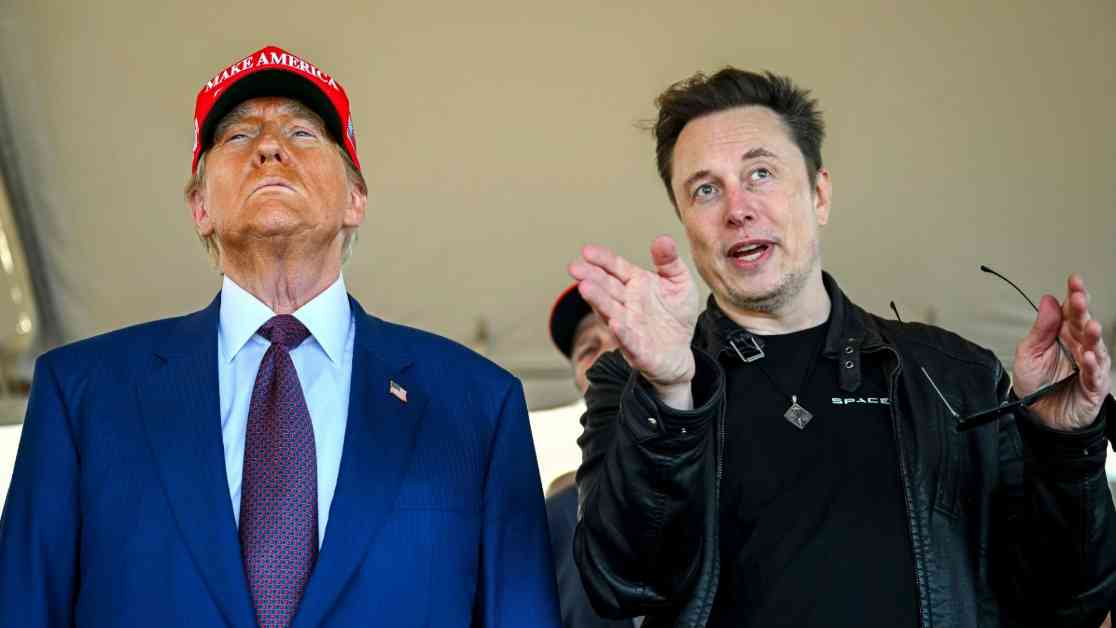Elon Musk, known for his innovative approach to technology and business, has recently made waves in the political sphere. In a surprising move, Musk has required all federal employees to report their weekly activities or face the consequence of resignation. This directive, issued in response to President Donald Trump’s push for efficiency and cost-cutting in government spending, has raised eyebrows and sparked debate. Let’s delve into the details of this bold initiative and its potential impact on the workforce and economy.
Elon Musk’s Ultimatum
Elon Musk, a key figure in Trump’s Department of Government Efficiency (DOGE) cabinet, has taken a firm stance on accountability in the federal workforce. In a recent tweet, Musk announced that all federal employees would soon receive an email requesting a detailed account of their weekly accomplishments. Failure to respond to this email would be construed as a voluntary resignation. The exact contents of the email and the deadline for responses remain shrouded in mystery, leaving many employees uncertain about their future.
This move by Musk comes in the wake of Trump’s longstanding efforts to streamline government operations and reduce bureaucratic hurdles. Trump’s establishment of the DOGE, with Musk at the helm, underscores his commitment to cutting costs, eliminating redundancies, and enhancing productivity. By wielding the threat of resignation as a tool for accountability, Musk is signaling a new era of transparency and efficiency in federal agencies.
The Implications of Musk’s Directive
The repercussions of Musk’s directive are far-reaching, with potential ramifications for thousands of federal employees. While the intention behind this move is to increase productivity and weed out underperforming staff, there are concerns about the fairness and feasibility of such stringent measures. Employees who may struggle to meet the demands of the email reporting system could face the prospect of losing their jobs, adding to the existing pressures of the workplace.
Moreover, the broader implications of Musk’s ultimatum extend to the economy at large. As the federal government grapples with budgetary constraints and fiscal challenges, the need for greater efficiency and accountability becomes paramount. By holding federal employees to a higher standard of performance, Musk and Trump are signaling their commitment to fiscal responsibility and prudent governance. However, the human cost of such measures cannot be overlooked, as employees navigate the uncertainty and anxiety surrounding their job security.
A Vision for the Future
Looking ahead, Musk and Trump’s partnership in the realm of government efficiency holds the promise of significant savings and operational improvements. With Musk’s ambitious goal of finding $2 trillion in savings, the DOGE is poised to make a substantial impact on federal spending and resource allocation. The proposed DOGE dividend, which would distribute savings to millions of taxpayers, represents a novel approach to incentivizing efficiency and rewarding fiscal prudence.
As Musk and Trump forge ahead with their mission to reshape government operations, the implications of their policies will reverberate throughout the workforce and the economy. By promoting accountability, transparency, and cost-effectiveness, they aim to usher in a new era of governance that prioritizes results over bureaucracy. While the road ahead may be challenging, the vision of a leaner, more efficient government remains within reach.
In conclusion, Elon Musk’s requirement for federal employees to report their weekly activities marks a significant shift in the landscape of government operations. As Musk and Trump push for greater efficiency and accountability, the workforce grapples with the implications of this bold directive. The road to a more streamlined and effective government is paved with challenges, but the potential rewards of fiscal responsibility and productivity loom on the horizon. Only time will tell how this partnership between technology and politics will shape the future of governance in the United States.


